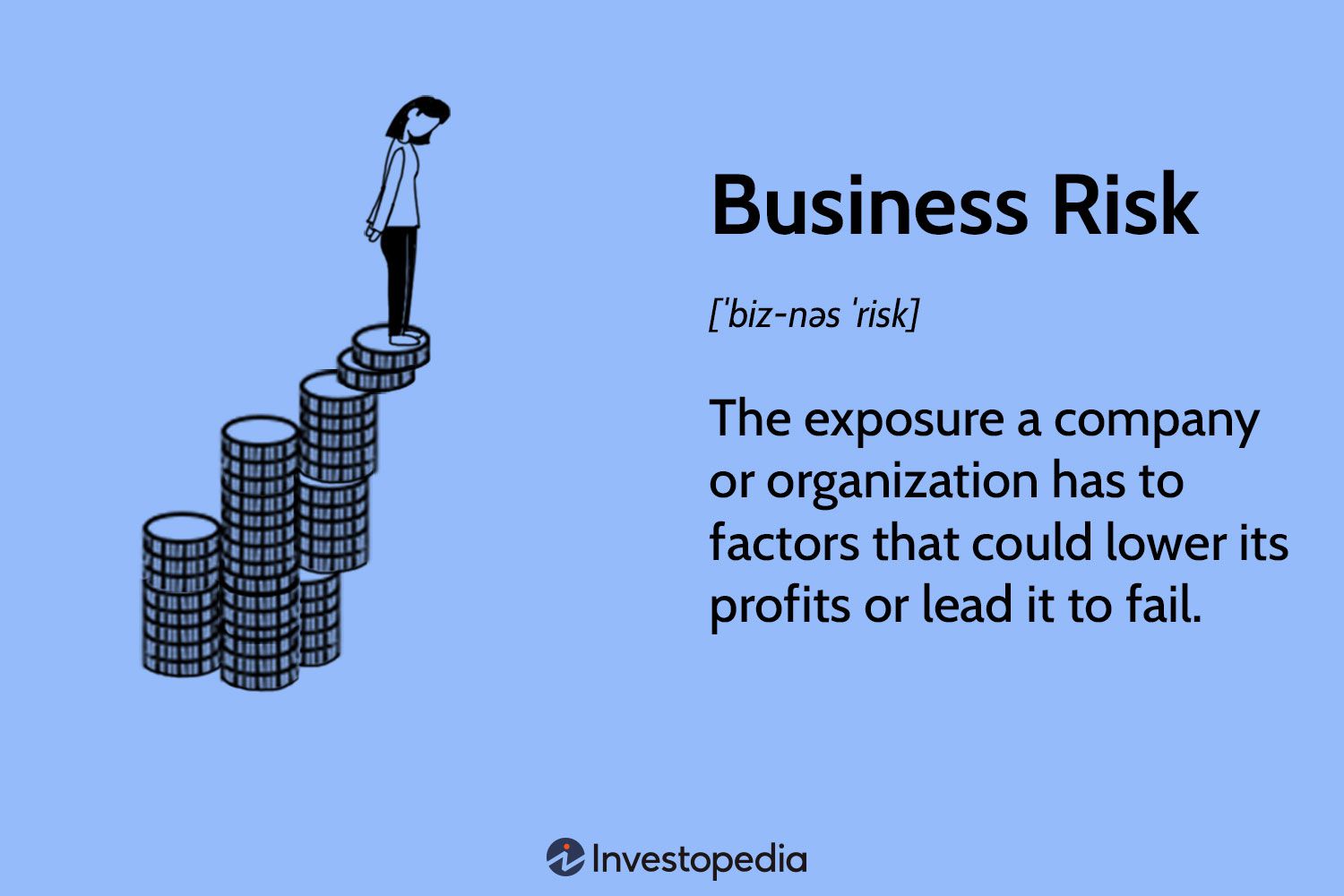What Causes Small-Business Failure? Do Larger Businesses Face the Same Risks?
Small-business failure is often attributed to poor management, tough competition, and unexpected shifts in market demand and supply. These causes can also apply to larger businesses and result in decreased output prices, increased input prices, and impact the overall viability of the business.
Small businesses face the challenge of poor management, intense domestic or foreign competition, and unexpected shifts in market conditions, affecting their productivity, profitability, and stability. Similarly, larger businesses can also struggle with these issues, leading to financial instability and decreased market competitiveness.
It is important for businesses of all sizes to effectively manage these factors to ensure sustainable growth and success.
:max_bytes(150000):strip_icc()/top-6-reasons-new-businesses-fail.aspx_final-a6c9c5400448431c80dd8df79e4a7b16.png)
Credit: www.investopedia.com
Causes Of Small-business Failure
Small businesses often fail due to poor management, intense competition, and unexpected shifts in market demand. These causes can also apply to larger businesses, with factors like inefficient operations, increased competition, and economic fluctuations affecting their success. However, it is crucial for entrepreneurs to act swiftly to recover from failure and learn from their experiences.
major causes of small-business failure include: lack of management, tough competition, and market demand and supply.Lack Of Management
Poor management is a significant cause of small-business failure. When businesses lack effective management, it can result in a lack of productivity, inefficiency, and poor decision-making. The inability to effectively manage finances, operations, and employees can severely impact the success and longevity of a small business. Without proper management, businesses may struggle to meet customer demands, maintain quality control, or adapt to changes in the market. It is essential for small-business owners to have strong leadership and management skills to steer their companies towards success.Tough Competition
Intense domestic or foreign competition can make it challenging for small businesses to thrive. Larger corporations with more resources and established market presence can often undercut prices, offer greater product variety, or provide better customer experiences. Small businesses may find it difficult to compete on price or differentiate themselves from larger competitors. The lack of financial capacity to invest in marketing, research, and development can also put small businesses at a disadvantage. To overcome tough competition, small-business owners need to be innovative, offer unique value propositions, and find niche markets that larger competitors may overlook.Market Demand And Supply
Unexpected shifts in market conditions, such as changes in consumer preferences, economic downturns, or disruptions in the supply chain, can lead to small-business failures. If the demand for a product or service decreases, businesses may struggle to generate sufficient sales. Conversely, if input prices increase due to supply chain disruptions or inflation, it can negatively impact a business’s profitability. Small businesses without the flexibility to adapt to changing market dynamics may face challenges in sustaining their operations. Monitoring market trends, conducting market research, and staying agile can help small businesses navigate market demand and supply fluctuations. In conclusion, lack of management, tough competition, and market demand and supply are major causes of small-business failure. Small businesses must address these challenges proactively to increase their chances of success. By improving management practices, finding innovative ways to compete, and staying attuned to market dynamics, small-business owners can mitigate the risks associated with failure and build thriving enterprises.
Credit: www.flexjobs.com
Similar Risks For Larger Businesses
When it comes to the risk factors for business failure, it’s essential to recognize that small and larger businesses face similar challenges. While the scale of impact may differ, the underlying causes of failure often overlap.
Inadequate Capital
Inadequate capital is a common risk factor for both small and larger businesses. Insufficient funds can hinder operational activities, limit expansion opportunities, and lead to financial instability.
Poor Management
Poor management can have detrimental effects on businesses of all sizes. Inefficient decision-making, lack of strategic planning, and ineffective leadership can impede growth and jeopardize the sustainability of an organization.
Competition
Competition poses a significant threat to business viability, irrespective of size. Small and larger businesses alike must navigate fierce competition, market saturation, and disruptive industry trends to maintain their market share and relevance.
Financial Factors
Financial factors play a crucial role in the failure of both small and large businesses. Scarcity of resources, high purchase prices, lease fees, lack of operational profit, poor service, inadequate management, and excessive competition all contribute to business failure. Additionally, economic crises, excessive regulations, and insufficient marketing can pose serious threats to both small and large businesses.
It is important for entrepreneurs to address these financial challenges to ensure the success and longevity of their businesses.
Scarcity Of Resources
Small businesses often face challenges due to the scarcity of resources, making it difficult for them to compete effectively. Limited financial capital, inadequate access to credit, and a shortage of skilled labor are common issues that hinder the growth and sustainability of small enterprises. The lack of resources can impede their ability to innovate, expand, or withstand market fluctuations, consequently increasing the risk of failure.
High Purchase Prices
High purchase prices of goods, equipment, or services can strain the financial stability of small businesses. When essential resources or assets come at a steep cost, it can lead to cash flow constraints, limiting their ability to cover operational expenses or invest in growth opportunities. This financial burden can exacerbate the risk of failure, especially for businesses operating in competitive markets with slim profit margins.
Lack Of Operational Profit
Lack of operational profit is a critical concern for small businesses, as it directly impacts their ability to sustain operations and reinvest in the business. When revenue generation does not surpass the cost of doing business, it can create a cycle of financial strain, hindering the organization’s capacity to survive and thrive in the long term.

Credit: hbr.org
Operational Factors
Small businesses often fail due to operational factors such as poor service, inadequate management, and excessive employees. These issues, combined with financial challenges and the impact of new competition, pose serious threats to the survival of small businesses. These causes can also apply to larger businesses, highlighting the importance of effective operational management in all enterprises.
Poor Service
Poor service is a significant operational factor that can lead to the failure of small businesses. When customers receive subpar service, they are more likely to take their business elsewhere, resulting in decreased customer loyalty and revenue loss. Providing exceptional customer service is crucial for small businesses to build lasting relationships and positive word-of-mouth referrals.
Inadequate Management
Inadequate management is another operational factor that contributes to the failure of small businesses. Without effective leadership and strategic decision-making, businesses may struggle to adapt to industry changes, develop efficient processes, and allocate resources effectively. Strong management skills are essential for business growth, employee satisfaction, and overall success.
Excessive Number Of Employees
Hiring an excessive number of employees can also be an operational factor that leads to small-business failure. Having more employees than necessary can significantly increase expenses, including salaries, benefits, and training costs. Small businesses need to evaluate their staffing needs carefully and ensure they have the appropriate number of employees to streamline operations and maintain profitability.
Other Reasons For Failure
Small businesses can fail due to various factors, including financial scarcity, unfavorable operational conditions, new competition, and economic crises. Additionally, wars, recessions, high taxation, excessive regulations, and poor management decisions also contribute to failures. Recovering from failure is crucial for entrepreneurs, as the recovery process is often easier than starting a new business.
While poor management, intense competition, and market shifts are major causes of small-business failure, there are other factors that can contribute to the downfall of a business. These factors can also apply to larger businesses, affecting their overall success and stability.
Introduction Of New Competition
One significant reason for business failure is the introduction of new competition. When a small or large business faces new competitors in the market, it can lead to a decrease in market share and customer base. The competition may offer similar or even cheaper products or services, making it challenging for businesses to differentiate themselves and attract customers.
Economic Crises
Economic crises, such as recessions or downturns, can have a devastating impact on businesses of all sizes. During such crises, consumer spending typically decreases, causing a decline in demand for goods and services. This directly affects the sales and profitability of businesses, making it difficult for them to generate revenue and remain financially stable.
High Taxation
High taxation can also contribute to the failure of small and large businesses alike. When businesses are burdened with heavy tax obligations, it can limit their ability to invest in growth, research and development, or hiring new employees. The excessive tax burden can eat into their profits, making it challenging to sustain their operations and compete in the market.
In conclusion, while poor management, intense competition, and market shifts are major causes of small-business failure, the introduction of new competition, economic crises, and high taxation are other factors that can lead to business downfall. These reasons also apply to larger businesses, impacting their overall viability and success.
Conclusion
The major causes of small-business failure include poor management, intense competition, and unexpected shifts in market demand and supply. These causes can have a detrimental impact on a business’s viability, leading to decreased output prices and increased input prices. While small-business failures can be challenging, they also contribute to the flexibility of the market system.
It is important for entrepreneurs to learn from these failures and strive for improvement in order to thrive in a competitive business environment.



